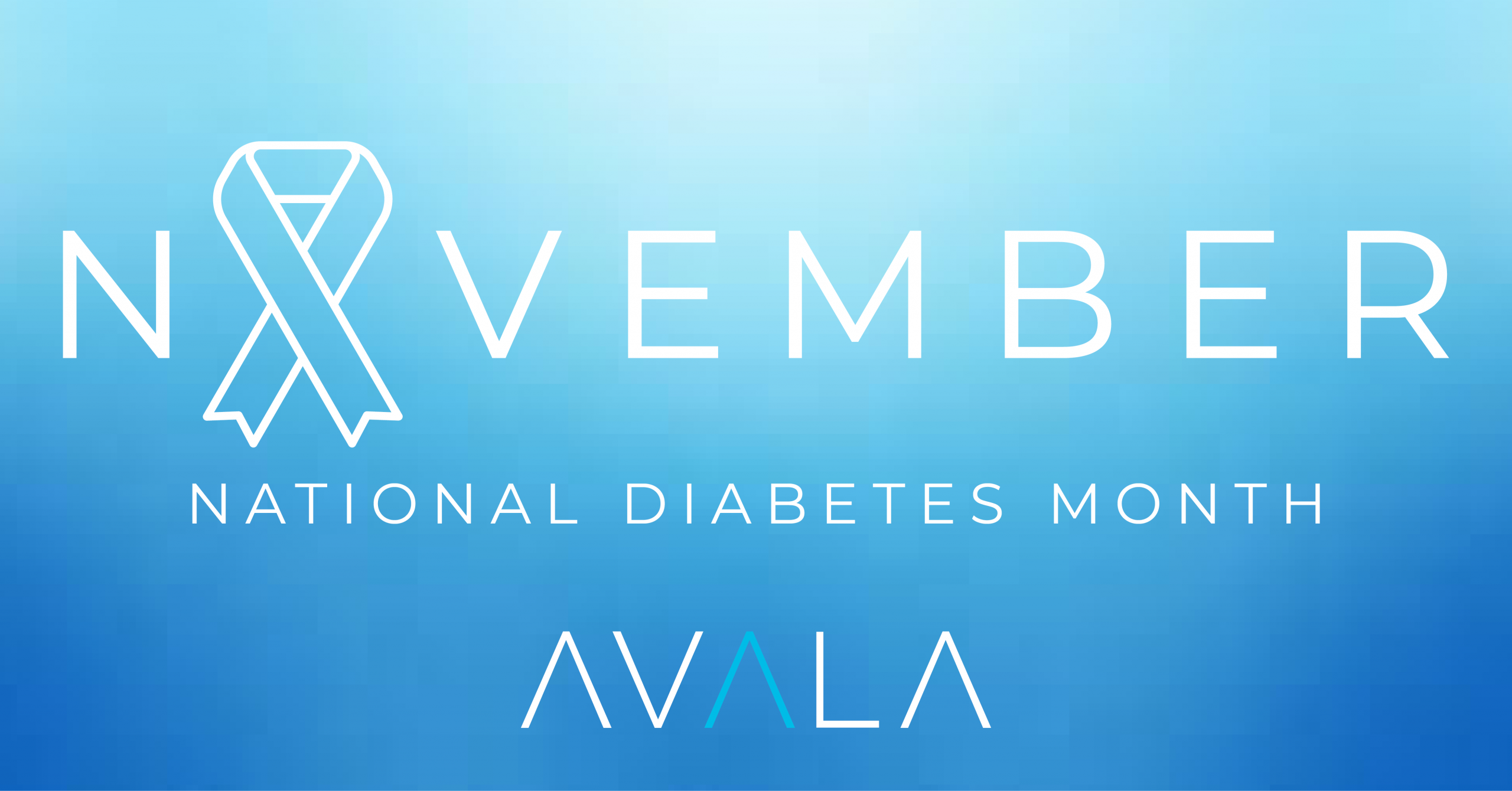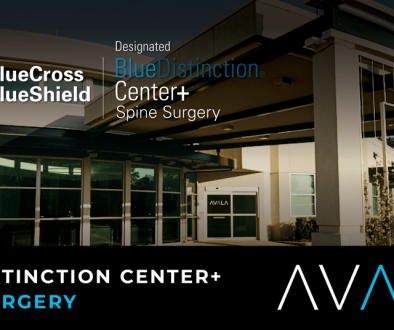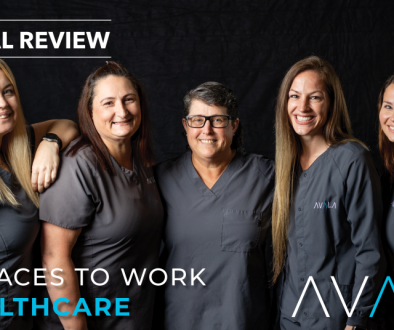National Diabetes Month
Diabetes is one of the leading causes of disability and death in the United States. One in 10 Americans have diabetes — that’s more than 30 million people. And another 84 million adults in the United States are at high risk of developing type 2 diabetes.
To raise awareness about diabetes and healthy living, Avala is proudly participating in American Diabetes Month.
What is diabetes?
Having diabetes means glucose (sugar) levels in your blood are too high. Your body depends on glucose for energy. When you eat, most of the food turns into glucose. Your blood carries the glucose to other parts of your body.
When you have diabetes, your body has trouble turning glucose into energy. Instead of being used by your body, glucose builds up in your blood and your body is starved of energy. Over time, high blood glucose can damage almost every part of your body.
Diabetes is a chronic (long-term) condition. Diabetes is a leading cause of disability and death in the United States.
- Diabetes increases the risk of serious health problems like:
- Heart disease
- Stroke
- Blindness
- Nerve damage, which can cause you to lose a toe, foot, or leg
- Kidney failure
What is type 2 diabetes?
Depending on your age, weight, and other factors, you may be at higher risk of developing type 2 diabetes. Type 2 diabetes is the most common form of diabetes. You’re more likely to get type 2 diabetes if you’re overweight and inactive – or if you have prediabetes.
Having prediabetes means your blood glucose levels are higher than normal, but not high enough for you to be diagnosed with type 2 diabetes.
The good news is that making healthy changes can greatly lower your risk.
- To help prevent type 2 diabetes:
- Watch your weight
- Eat healthy
- Stay active
What other types of diabetes are there?
Type 1 Diabetes
Type 1 diabetes seems to be caused by a problem with the immune system (the system that helps fight infection). Right now, there’s no way to prevent type 1 diabetes.
Gestational Diabetes
Gestational diabetes is a type of diabetes that some women develop during pregnancy. Gestational diabetes increases the risk of health problems for you and your baby. For example, gestational diabetes can make it more likely that you or your baby will develop type 2 diabetes later in life. Learn more about gestational diabetes.
Take Action
- Talk to you doctor:
- Talk to a doctor about your risk for type 2 diabetes.
- Ask your doctor or nurse how to prevent type 2 diabetes.
- Ask about diabetes prevention programs near you.
- If you’re pregnant or planning to get pregnant, talk to your doctor or midwife about gestational diabetes.




